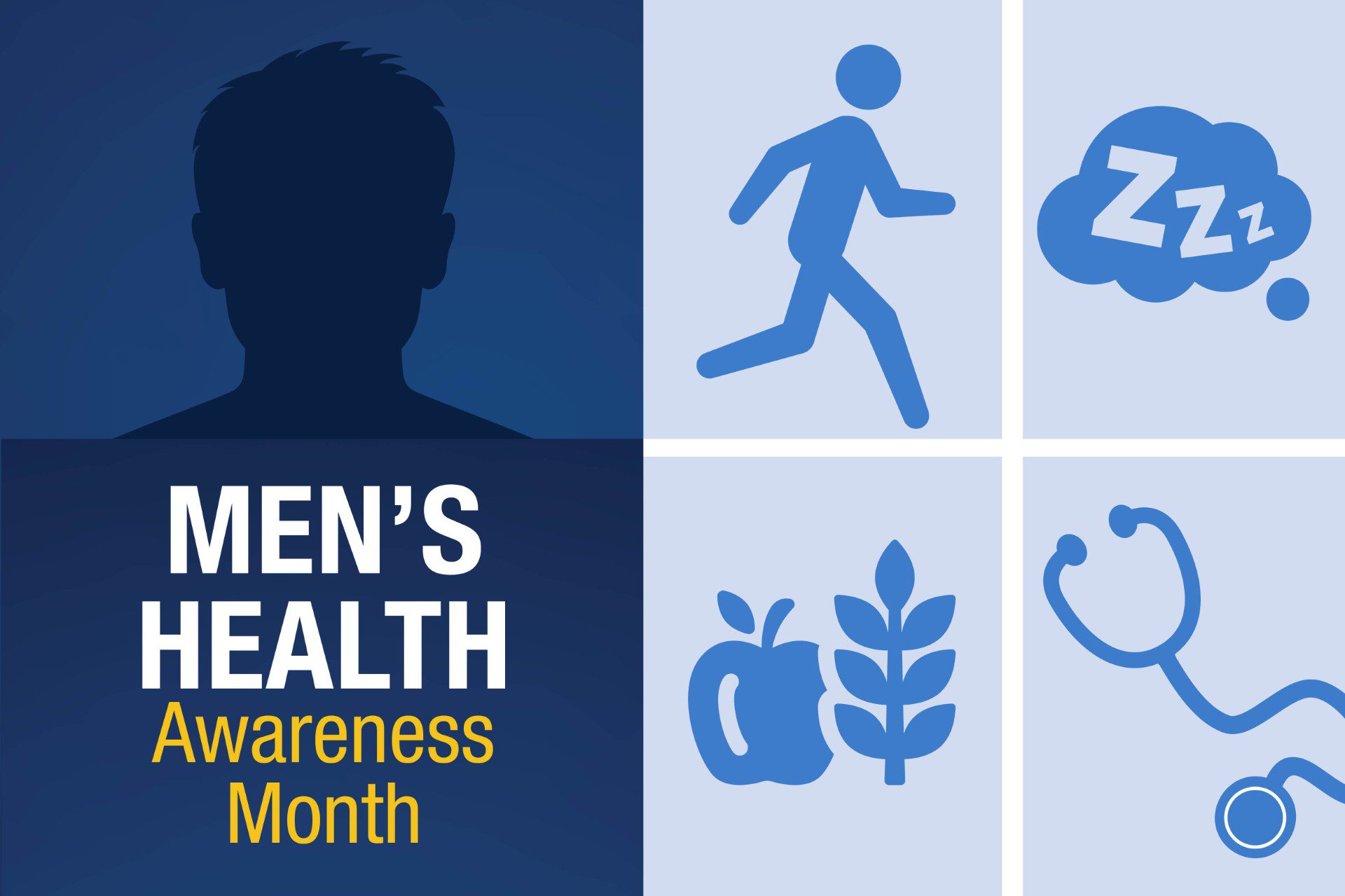
June marks Men’s Health Month, a time dedicated to raising awareness about the health challenges faced by men and encouraging them to take proactive steps toward improving their wellbeing. This month is an opportunity for men to reflect on their health habits, schedule necessary check-ups and make lifestyle changes that can lead to a longer, healthier life.
Dr. Edwin Kornoelje, a primary care physician and sports medicine specialist at University of Michigan Health-West, recently led a Men’s Health Month discussion with journalists and staff at Fox 17 in Grand Rapids. The discussion focused on maintaining an active lifestyle regardless of age, offering practical advice for men in several key areas:
- Physical Activity: Maintaining an active lifestyle is one of the most effective ways to improve health and reduce the risk of chronic diseases. Dr. Kornoelje recommends aiming for 10,000 steps per day and incorporating 30 minutes of heart-rate-increasing activity daily. This can significantly enhance quality of life, reduce disease risk and boost mental wellbeing.
- Routine Medical Exams: Regular check-ups are crucial for early detection and treatment of health issues. Dr. Kornoelje emphasizes the importance of annual medical exams to screen for conditions such as heart disease, cancer and diabetes. Many men delay doctor visits, which can lead to late diagnoses and more severe health problems.
- Mental Health: Mental health is a critical aspect of overall wellbeing. Dr. Kornoelje encourages men to have honest conversations with their doctors about stress, anxiety and depression. Increasing physical activity, adding exercise and making dietary changes can help alleviate these symptoms. In some cases, medication may be necessary, underscoring the importance of open communication with healthcare providers.
- Healthy Habits: Incorporating healthy habits into daily routines can make a significant difference. Dr. Kornoelje suggests simple changes such as parking farther from entrances, taking the stairs instead of elevators and breaking up exercise into manageable increments. Activities like gardening, mowing the lawn or playing sports can also contribute to overall fitness.
In addition, Dr. Kornoelie provided practical tips for a healthier lifestyle:
- Get Moving: Aim for at least 150 minutes of moderate-intensity exercise per week. This can include walking, jogging, cycling or any activity that raises your heart rate.
- Stay Active at Work: If you have a desk job, stand up and move around for a few minutes every hour. Try to rise from a chair or couch without using your hands to engage core muscles.
- Prioritize Sleep: Aim for 7-8 hours of quality sleep each night. Good sleep hygiene is essential for mental and physical health.
- Balanced Diet: Eat a diet rich in fruits, vegetables, whole grains and lean proteins. Limit processed foods, sugary drinks, and excessive alcohol consumption.
- Regular Check-Ups: Schedule annual medical exams and stay up to date with recommended screenings and vaccinations.
Dr. Kornoelje’s insights during Men’s Health Month highlight the importance of adopting and maintaining healthy habits to improve overall wellbeing. These practical tips and advice can help men lead healthier, more active lives. Men’s Health Month aims to address the fact that men, on average, have shorter lifespans than women and are more likely to suffer from chronic conditions like heart disease, cancer, and diabetes. By focusing on prevention, early detection, and healthy living, Men’s Health Month seeks to bridge this health gap and promote a culture of wellness among men of all ages.